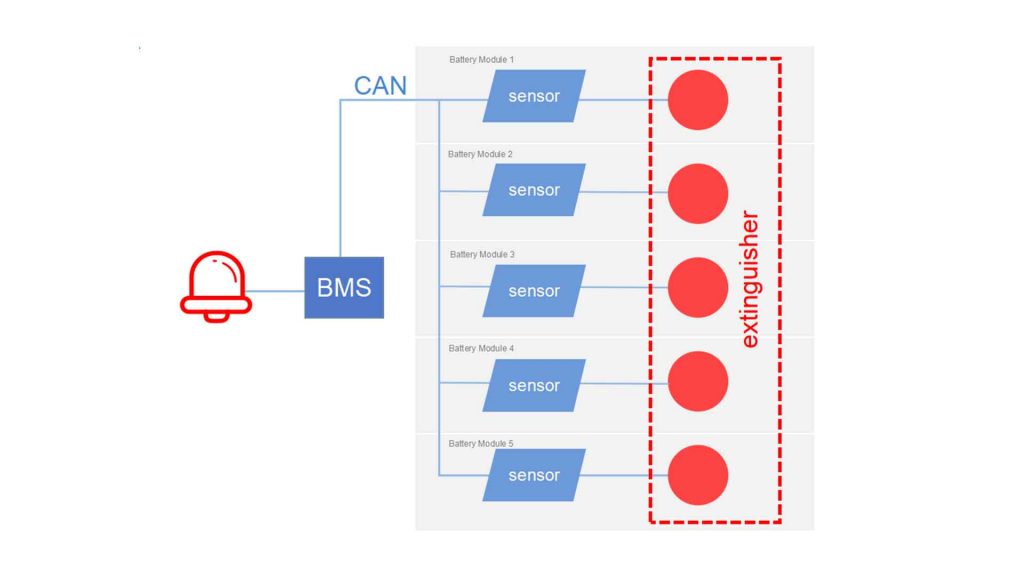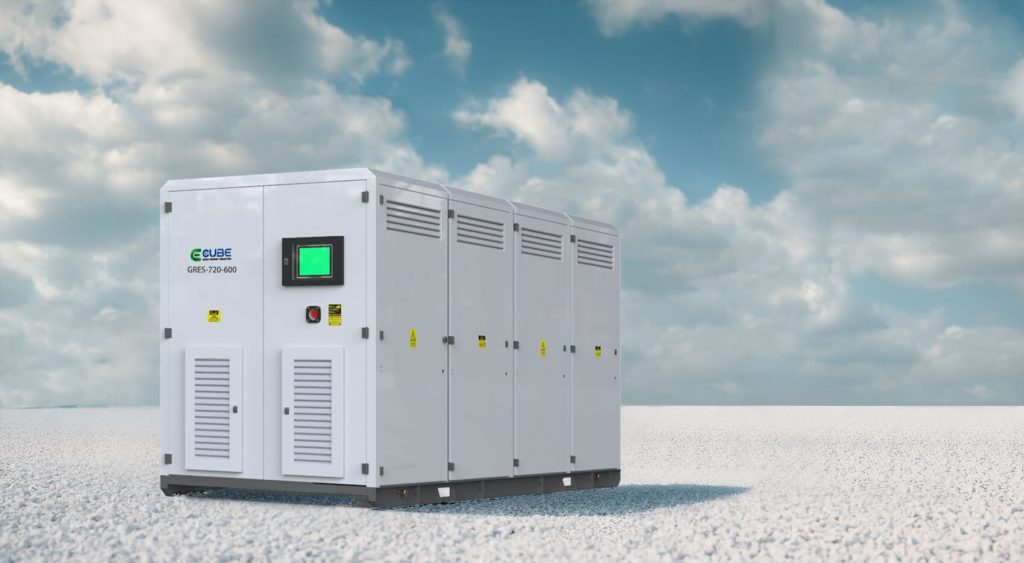As the economics of industrial and commercial energy storage continue to increase, industrial and commercial energy storage has developed rapidly in recent years. However, in the past ten years, there have been 10 energy storage safety accidents worldwide. How to ensure the safe operation of energy storage systems?
The safety system of energy storage systems includes multiple levels of design, control, and monitoring to ensure that the system does not cause danger to personnel, the environment, and equipment during operation. The following are some key aspects of the security architecture of energy storage systems:
Battery Management System (BMS)
BMS is the core of the energy storage system and is responsible for monitoring the battery’s status, performance, and safety. It monitors the voltage, temperature, current, and other parameters of the battery and ensures that it operates within a safe range. If a problem is discovered, the BMS can take measures to prevent potential dangers, such as cutting off power or reducing charge and discharge rates.
In long-cycle applications, the BMS must have sufficient data storage capacity to record and save long-term operating data. This helps conduct historical data analysis, discover patterns in battery status evolution, and develop more effective management strategies. BMS must have high anti-interference capability to stably collect and transmit data in special application scenarios such as frequency modulation and high voltage.

Energy Management System (EMS)
It is a software and hardware system used to monitor, control, and optimize the operation of power systems to improve energy efficiency, reduce costs, and ensure the stability of the power system. EMS plays a critical role in the energy industry, grid operations, and large industrial facilities. EMS can monitor various components of the power system in real-time, including voltage, current, frequency, power, and other parameters. It collects large amounts of data and uses it for analysis and decision-making.
EMS relies more on the information reported by BMS. However, due to the uneven technical capabilities of various BMS manufacturers, phenomena such as false equalization and false equalization in BMS will interfere with the reliability of EMS decision-making. Therefore, it is necessary to strengthen the self-supervision ability of EMS to achieve regular self-calibration and unsupervised learning of key parameters to reduce data misjudgment.
Generally speaking, the security system of the energy storage system is multi-layered, covering hardware, software, monitoring, and emergency response measures to ensure the safety and reliability of the system. These measures help reduce potential risks and protect the safety of people and the environment.
How to take measures to ensure safety?
Energy storage products should have the following functions
Temperature control: Battery temperature control is one of the key factors for the safety of energy storage systems. Systems typically include temperature sensors and heat sinks to ensure the battery operates within the appropriate temperature range. Excessively high temperatures may cause the battery to overheat, causing danger.
Fire prevention measures: Energy storage systems must take fire prevention measures. This includes using fire-retardant materials, building firewalls, installing fire alarm systems and fire-fighting equipment, etc. In addition, the design of energy storage systems should consider safe isolation in the event of battery fire.
Battery safety standards: Energy storage systems often must meet specific battery safety standards and regulations, such as those from UL or IEC. These standards specify battery safety performance requirements and test methods.
Electrical Safety: The electrical portion of the energy storage system must meet safe electrical codes to prevent the risk of electric shock and fire. This includes certified electrical components, proper wiring and insulation, electrical isolation, etc.
Overcharge and over-discharge protection: Energy storage systems must have overcharge and over-discharge protection functions to prevent the battery from being overstressed during charging and discharging, extending battery life and reducing the fire risk.
Environmental monitoring: Energy storage systems often have environmental monitoring equipment to detect potential gas leaks (such as gas batteries), temperature abnormalities, or other abnormalities. This helps identify potential problems early and take appropriate action.
Physical Security: Physical security measures include restricting unauthorized access, protecting batteries and electrical parts from damage or destruction, and ensuring that systems are not susceptible to theft.
Operators should pay attention to the following aspects
Emergency Response Plan: Develop and implement an emergency response plan to respond to potential accidents or safety incidents. Train project operators to familiarize them with emergency procedures to respond to potential safety incidents.
Comply with regulations: Comply with relevant regulations and standards to ensure the compliance of energy storage projects. This includes battery safety standards, electrical safety standards, etc.
Regular training and awareness raising: Train project operators to improve their safety awareness and skills. Make sure they understand the operation and maintenance requirements of energy storage systems.
Supervision and Review: Cooperate with regulatory agencies to conduct regular reviews and assessments to ensure project compliance and safety.
Energy storage operators must remain vigilant and pay attention to seek the development direction of energy storage safety. Only in this way can the battery energy storage industry operate more efficiently and stably!


